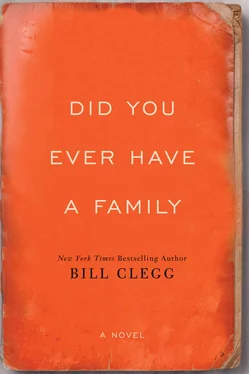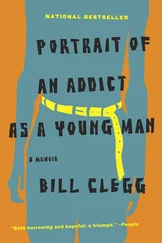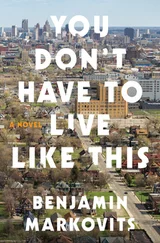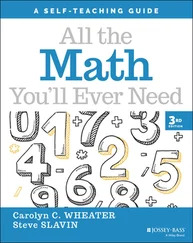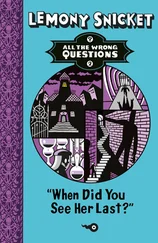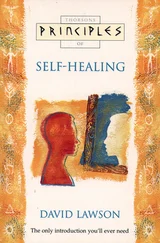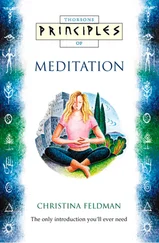June came back a few weeks later and again Lydia rushed inside. But the next time she came, Lydia didn’t duck into her apartment or tell her to go. She stood on the porch and let her speak. It embarrasses her to remember, but she was flattered this elegant woman was so determined to spend time with her. After a little while, she asked her in. She stayed and she talked, and she came again, and after that again. Eventually, Luke came with her. The first few times he barely spoke, and Lydia, terrified she’d say the wrong thing and cause him to storm out, kept quiet. Lydia remembers June teasing Luke about the kids he hired— Perverts, pickpockets, and potheads, she’d chant — and each time would get a reaction. He’d try to get mad, but when he did, she would poke him in the stomach or under his arms and he would, against his will, melt. During those first few sessions, June’s light joking was the only sound to break the silence, and as difficult as it was to see Luke so at ease with a woman her own age, she was grateful. Slowly, after a few visits, he began to talk about work, even ask Lydia questions about the people she cleaned for. And then one morning, before Lydia left for the day, he showed up alone. They sat on the bottom step of her porch, mostly in silence, and watched two teenage boys scrape paint from the fence of a house on Lower Main Street. Eventually Lydia turned toward Luke and cautiously placed her hand on his shoulder. She began to speak, Luke, I… but he interrupted her, rushing his words, which sounded as if he’d rehearsed them. We’ll be okay…. I don’t ever want to talk about it because there’s nothing you can say to change what happened. And I don’t want you to try. I’ll never understand. I don’t want to. But we’ll be okay . Before she could respond, he hugged her — quickly, the first time in years, his neck against her face, his smell, his skin, all of a sudden so close. He stood, and as he turned toward his truck to leave, he stumbled awkwardly and nearly fell. I have to, he started to say, righting himself, then pausing a beat, stop drinking in the morning, a smile flaring, his eyes bright. This was less than one year before he died. Nothing, and then so much, then nothing.
After those first few weeks following the accident, Lydia stopped picking up the phone. Sometimes she’d leave the apartment, walk down to the town green and back to avoid it. Other times she’d just let it ring and ring. She’d turn the volume up on the television to drown the sound out, or if someone kept calling, she’d get in the shower and turn on the radio that hung from the showerhead. Eventually, the phone went quiet.
When the first call came from Winton, she picked up. It was the day she ran from the women at the coffee shop. When she came home that night, she sat down at the kitchen table. That first flash of anger when she’d heard the women gossiping frightened her, and panic drove her home. But the longer she sat in the kitchen and the more she replayed what she’d heard, the more that anger returned, and she felt again the hot violence from before. Something about those women — no more careless or cruel than anyone else she’d ever come across, and probably less so than many — something about what they said and how they said it that made her want to hurt someone. That anger and the ugly fantasies it fueled had her shaking in the dark kitchen. She sat there for so long and so still that when the phone rang, she jumped to her feet. Even at its lowest volume it startled her, and she rushed across the kitchen to pick up. The voice on the other end was a man’s, a younger man’s. She was relieved it was no one she knew. He sounded British but with a lilt or swerve in the accent that she couldn’t place. He asked if she was Lydia Morey, and when she said yes, he said, Miss Lydia Morey, you’ve won the lottery . Silly, she knew. Obviously some kind of scam, but she was caught off guard. I don’t win anything, she said without thinking, then told him he must have the wrong person because she hadn’t entered any lottery. As if anticipating her response, he said, Sometimes we enter lotteries and do not know; for example, if you have a magazine subscription or a Triple A membership, you may have automatically been submitted for a lottery . She told him she didn’t have any magazine subscriptions and was not a member of anything, and then he laughed. A big, wide warm laugh. After that, he said her name, slowly. Miss. Lydia. Morey . He just said her name, the same one when spoken out loud at the coffee shop earlier had caused her to flee. As he said it, heat rippled across her chest. A funny bone she didn’t even know was still there had been tickled, and something like a smile wrinkled her lips. Before she let him speak another word, she slammed the phone in its cradle.
There is no lake. She has been inching along this rock-strewn dirt road for hours, and there has been no sign of water, no cars, no humans, no evidence that she took the right exit after Missoula, or pointed the car in the right direction each time the almost-road forked. She is lost and alone and it does not matter. Nothing does, she thinks, not for the first time. She circles the idea again and again — that no choice she might make would have any impact on her or anyone else. Before now she would have felt exhilarated by the idea of existing without obligation or consequence, but the experience is nothing like she once imagined. This is a half-life, a split purgatory where her body and mind coexist but occupy separate realities. Her eyes look at what is ahead — the road, a fallen tree — but her mind scours the past, judges each choice made, relives every failure, roots out what she overlooked, took for granted, and didn’t pay attention to. The present scarcely registers. The people she sees are not the ones pumping gas into the Subaru, passing her on the highway, or making change when they sell her bottles of water and peanuts at mini-marts and gas stations. Instead it is Luke, pleading with her in a kitchen that no longer exists; Lolly, shouting at the top of her fourteen-year-old lungs from across a restaurant table in Tribeca; Adam, looking up at her, shocked, a young girl’s hand in his; Lydia stepping toward her that morning, before she knew what had happened, and the confusion and hurt on her face as June waved her off. She returns to these memories and replays them over and over, scrutinizes every remembered word, witnesses again each mistake. When she exhausts one, another appears. Another always does.
Her mind leaps to her childhood friend Annette. Annette lived two streets away in the same neighborhood in Lake Forest, and they spent their Saturday nights at each other’s house, playing with Annette’s collection of porcelain horses, listening to Shaun Cassidy and Jackson 5 records, making lists of where they would live when they grew up, what car they would drive, and what their husbands would look like. She remembers convincing Annette to come with her to sleepaway camp in New Hampshire the summer between fifth and sixth grades. Annette was timid, a careful creature who was reluctant to agree. For both it would be their first time away from home without parents, and Annette cited plenty of reasons not to go — the high school boys who lifeguarded at the club pool, an Arabian-horse show coming to Chicago. But June kept at her over the Christmas holiday, even convinced her mother to call and explain to Annette’s protective mother the place where she herself had gone as a girl. June can’t recall why it was so important she come with her, but remembers clearly the triptych of cousins from Beverly Hills who naturally and without ceremony established themselves at the top of the social pecking order from the first day. They had glamorous names — Kyle, Blaire, and Marin — and all three had the same feathered, shoulder-length, light brown hair.
Читать дальше
